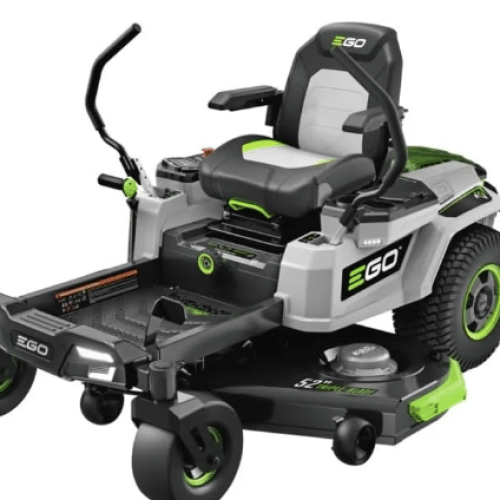Hi guys its JV Charles. Homeowners use about 100 million pounds of pesticides in homes and gardens yearly1. WOW! These harsh chemicals can stay active for over a year, releasing toxins and vapors that put our families and the environment at risk1. But there’s a better way to achieve a lush, healthy lawn – one that’s safe, eco-friendly, and sustainable. Welcome to “The Ultimate Guide to Organic Lawn Care: Safe and Eco-Friendly Practices.”
In this comprehensive guide, we’ll explore the world of organic lawn care. We’ll give you practical tips to create a vibrant, chemical-free yard. By adopting natural methods, you’ll not only protect your loved ones and pets but also contribute to the overall health of our planet.
Key Takeaways
- Organic lawn care is a safe and eco-friendly alternative to harsh chemicals
- Conducting a soil test is crucial for optimal lawn health and nutrient balance
- Proper mowing techniques and water management can reduce the need for pesticides
- Organic fertilizers and natural pest control methods promote a sustainable lawn
- Transitioning to organic lawn care may require an adjustment period, but the long-term benefits are worth it
Understanding Organic Lawn Care
Organic lawn care uses natural methods to keep your lawn healthy. It’s different from using synthetic chemicals. Instead, it focuses on nurturing the soil and supporting biodiversity2. Many homeowners find their lawns look great without using synthetic products2.
Organic lawns need less water because their roots grow deeper and soil is healthier2. Organic fertilizers release nutrients slowly, giving the lawn a steady supply of food.
What is Organic Lawn Care?
Organic lawn care is a natural way to keep your lawn looking good. It avoids harmful chemicals and focuses on soil health and natural ecosystems3. This method uses products made from plants and animals, keeping them safe for kids and pets3.
Benefits of Organic Lawn Care
Organic lawn care offers more than just a pretty lawn2. It prefers cooler temperatures for some grasses and warmer for others2. For cool-season grasses, mowing at 2.5–4 inches helps roots grow deep and weeds stay away2.
Watering in the early morning is best, aiming for 1–2 inches of water per week2. This method is safer for families and pets, and it helps protect water sources. It’s also better for the environment in the long run.
Organic lawn care also aims for a balanced ecosystem where pests are naturally controlled3. For severe weed problems, synthetic weed control might be needed3. But, organic methods focus on prevention. Sometimes, a mix of organic and synthetic products is used for tough lawn issues.
“Organic lawn care nurtures the soil, encourages biodiversity, and promotes long-term sustainability.”
In summary, organic lawn care is all about the health of your lawn and the environment. It uses natural methods and products. This way, you can have a beautiful, sustainable lawn while reducing your carbon footprint and keeping your family and pets safe.
Soil Health and Preparation
Starting a healthy, organic lawn begins with the soil. It’s key to check and boost your soil’s health. Conducting a soil test is the first step. It shows the soil’s pH, nutrients, and makeup4.
With the test results, you can fix your soil. You might need to change the pH or add organic stuff like compost or manure5. These help the soil hold water better and give it the nutrients it needs for a lush lawn.
- Conduct a comprehensive soil test to assess pH levels, nutrient content, and overall composition.
- Amend the soil with organic matter, such as compost or manure, to improve structure, drainage, and nutrient availability.
- Adjust the soil pH as needed to create the optimal growing conditions for your chosen lawn grass.
Investing in your soil’s health means a better lawn. It needs less chemicals and can handle stress better4. This helps your lawn and the environment, making lawn care less harmful.
Places like LawntoLakeMidwest.org have great tools. They have a Natural Lawn Care Quiz and a month-by-month lawn care guide. These help everyone switch to greener lawn care4.
“Maintaining a healthy lawn is not only aesthetically pleasing but also plays a crucial role in preserving the natural ecosystem. By nurturing our soil, we can create a lawn that thrives without relying on harmful chemicals.”
Choosing the Right Grass and Plants
Creating an organic, sustainable lawn starts with picking the right grass and plants. Native grass varieties6 are key for a lawn that’s tough, drought-resistant, and good for wildlife6. Warm-Season Grasses like Bermuda, Zoysia, and Centipede do well in warm places. Cool-Season Grasses, like Kentucky Bluegrass and Tall Fescue, are better in cooler areas6.
Adding native plants and wildflowers makes your lawn look great and helps the environment. These plants7 need less care and water than regular plants. They also feed and house local wildlife, including bees7. This makes your lawn a haven for nature7.
| Grass Type | Ideal Climate | Key Features |
|---|---|---|
| Warm-Season Grasses | Mild Winters, Hot Summers | Bermuda grass, Zoysia grass, Centipede grass |
| Cool-Season Grasses | Colder Winters, Moderate Summers | Kentucky Bluegrass, Tall Fescue |
To keep your lawn healthy, test the soil8 and add the right nutrients8. This way, you’ll have a beautiful, easy-to-care-for lawn that’s good for the planet8.
“Native plants require less water and maintenance, and they support local wildlife and pollinators, contributing to a more diverse and sustainable ecosystem.”
Essential Lawn Care Practices
To have a lush, healthy lawn, you need to focus on key care practices. This includes mowing, watering, and controlling weeds. Each step is vital for a lawn that’s good for the planet. Let’s explore how to keep your lawn looking great without harming the environment.
Mowing Techniques
Mowing right is the first step to a great lawn. We suggest setting your mower blades to three to four inches9. This helps the grass grow deep and keeps weeds away. Also, leaving the clippings on the lawn adds nutrients to the soil, like a natural mulch9.
Watering Guidelines
Watering your lawn correctly is key to its health. Give your lawn about one inch of water each week10. But, don’t overwater. It can make the grass weak and prone to disease. Instead, water deeply but less often to help the grass grow strong and save water.
Weed Control Methods
Using organic methods to control weeds is important for a healthy lawn. Organic weed control takes time to work9. You can also remove weeds by hand and use organic mulches to stop them from growing9. For tough problems, you might need to mix organic and synthetic products. This helps keep your grass healthy.
By following these lawn care tips, you’ll have a vibrant, eco-friendly outdoor space. Stay tuned for more advice on controlling pests and diseases naturally. We’ll also share long-term care tips for a sustainable lawn910.
The Ultimate Guide to Organic Lawn Care: Safe and Eco-Friendly Practices
Organic lawn care makes your outdoor space beautiful and eco-friendly. It benefits your family, the local ecosystem, and the planet11. Organic methods make your lawn stronger and more resistant to weather and pests11.
Organic lawn care uses fewer pesticides and water. This makes it a greener choice for gardening.
11 Chemicals from traditional lawn care harm the environment. They can damage plants and water, affecting humans and animals11. Organic care avoids these harmful chemicals, making your garden safer and more eco-friendly11.
Switching to organic lawn care is good for your lawn. It uses organic fertilizers that enrich the soil without harming it, promoting healthy grass growth.
11 Regular mowing keeps your lawn healthy. It prevents weeds and supports drought-resistant roots11. Starting composting improves soil health by adding essential nutrients through decomposition11.
Organic lawn care services, like those from OrganicLawns, improve lawn health. They reduce pesticide use and make lawn care easier.
| Organic Lawn Care | Synthetic Lawn Care |
|---|---|
| 12Organic lawn care products are better for the environment than synthetic alternatives12.Organic lawn care products can be applied year-round, including in summer temperatures above 85º Fahrenheit12.Organic lawn care products are safe for kids and pets, reducing their exposure to synthetic chemicals. | 12Synthetic fertilizers provide immediate greening and rapid treatment of severe lawn issues12.Regular re-application of synthetic fertilizers is necessary, unlike organic fertilizers that can be applied as needed. |
| 12Organic fertilizers contain natural ingredients, supporting soil microbes and promoting slow, gradual nutrient absorption12.Organic fertilizers are more gentle on the lawn, reducing the risk of burning from over-application. | 12Proper mowing practices, such as keeping mower blades sharp and changing mowing patterns, help maintain a healthy lawn12.Leaving grass clippings on the lawn after mowing adds essential nutrients back to the soil. |
| 12Adding compost to the soil helps maintain a dense, lush lawn by controlling thatch, reducing stress, and acting as a natural fertilizer12.Growing a thick, healthy lawn can prevent weeds and insects, with organic weed control often preventing issues before they occur. | 12Combining organic and synthetic products may be necessary to effectively treat severe lawn issues while maintaining long-term benefits of organic care. |
11 Lawn fertilization services improve root health and restore soil quality. They prevent pest infestations, following Maryland’s fertilizer regulations11. Weed control services offered by OrganicLawns use organic products and aerating/seeding techniques to protect the lawn from weed competition11.
11 Aeration and seeding services benefit the lawn by increasing oxygen intake for roots, improving water infiltration, and reducing weed growth.
11 Soil amendment services enhance soil quality by optimizing water retention, drainage, aeration, structure, and water infiltration, benefiting plant health11. Grub control services target destructive pests without harming beneficial insects, using bio-insecticide products to effectively manage lawn grubs11. Annual soil tests are essential for organic lawn care to assess soil structure, pH levels, nutrients, and minerals for a personalized lawn care solution.
11 Starter fertilizer helps in promoting fast root growth in new grass seeds by providing concentrated nutrients, and should be applied in the spring or fall for optimal results11. Disease control services are necessary to manage and remove fungal diseases that affect the lawn’s appearance, requiring specialized care to address the issue efficiently.
Natural Pest and Disease Control
Keeping your lawn healthy is the best way to fight pests and diseases. By planting ladybugs, lacewings, and bees, we help create a balanced ecosystem. This balance naturally keeps pests away13. Using companion plants that repel pests or attract their predators is also smart13.
It’s important to check your lawn often to catch problems early. When you see pests, use gentle, plant-based solutions like neem oil or homemade sprays13. Taking care of your lawn and keeping it diverse helps prevent pests and diseases13.
| Organic Pest Control Methods | Benefits |
|---|---|
| Companion Planting | Repels pests, attracts beneficial insects |
| Neem Oil | Insecticidal and fungicidal properties |
| Insecticidal Soaps | Effective against soft-bodied insects |
| Homemade Organic Sprays | Customizable, cost-effective solutions |
A study by the Xerces Society found organic lawns are better for pollinators than conventional ones14. By keeping our lawns healthy and diverse, we help pollinators and keep pests away14.
Prevention is the best strategy. Watch your lawn, support beneficial insects, and use organic treatments. With a bit of effort, you can have a beautiful, eco-friendly lawn all year.
Long-Term Maintenance and Sustainability
Keeping an organic lawn is a long-term job, but it’s worth it. You get a lush, green space that’s good for the planet. To keep your lawn healthy, do regular maintenance. This includes caring for the soil and helping the grass grow strong.
Begin with annual aeration to make the soil better and help it absorb nutrients15. Use a mix of grass seeds to fill in thin spots and make your lawn thick and strong16. Use rainwater for watering and choose eco-friendly mowers16. These steps will help your lawn stay healthy for years.
Using the right organic fertilizers is also important. Use compost or organic fertilizers based on soil tests to feed your grass well15. Applying organic fertilizer in winter helps your lawn get ready for the next year15. Leaving grass clippings on the lawn acts as natural fertilizer, saving you money and resources16.
By following these green lawn care tips, you’ll have a beautiful, eco-friendly lawn15. With a bit of work and the right methods, your lawn can be a green example for your neighborhood151617.,,
| Sustainable Lawn Care Practices | Benefits |
|---|---|
| Annual aeration | Improves soil structure and nutrient absorption |
| Overseeding thin areas | Enhances lawn density and weed resistance |
| Rainwater collection for irrigation | Conserves water and reduces reliance on municipal sources |
| Organic fertilization based on soil tests | Provides precise nutrient balance for optimal grass health |
| Grasscycling (leaving clippings on the lawn) | Recycles nutrients and reduces the need for external fertilizers |
By adopting these green lawn care practices, you’ll have a beautiful, eco-friendly lawn15. With a bit of work and the right methods, your lawn can be a green example for your neighborhood151617.,,
“Sustainable lawn care is not just about having a beautiful yard; it’s about nurturing a healthy, resilient ecosystem that benefits the entire community.”
Conclusion
By following the tips in this guide, we can have a beautiful, vibrant lawn18. Organic lawn care products are safe and effective for a lush, green landscape18. These products work well in summer, even when it’s hot, making them great for all seasons18.
Choosing organic lawn care helps our planet for generations to come19. It saves water, fertilizer, and other resources, saving money and protecting the environment19. It also reduces toxic chemical use and pollution, making our landscapes greener19.
We’re excited to be part of the shift towards sustainable lawn care1819. By caring for our soil and choosing the right plants, we create a beautiful, eco-friendly space. This space brings joy to our families, supports local wildlife, and helps our planet1819.
FAQ
What is organic lawn care?
Organic lawn care uses natural methods to keep your lawn healthy. It’s different from using synthetic chemicals. This approach helps the soil, supports biodiversity, and is good for the long run.
What are the benefits of organic lawn care?
Organic lawn care is safer for families and pets. It also helps keep water clean. Plus, it’s a sustainable way to care for your lawn.
How do I improve the health of my soil?
First, test your soil to know its pH and nutrient levels. Then, adjust the pH and add compost or manure. These steps improve soil structure and make it fertile for your lawn.
What types of grass and plants should I choose for an organic lawn?
Pick native grasses that fit your climate and soil. They’re better at fighting pests and diseases. Adding native plants and wildflowers also beautifies your lawn and helps local wildlife.
How do I properly mow, water, and control weeds in an organic lawn?
Mow at the right height for your grass to promote deep roots. Leave clippings to act as a natural fertilizer. Water deeply but infrequently to encourage deep roots. Avoid overwatering to prevent disease.
For weeds, remove them by hand or use organic mulches. Proper mowing also helps control weeds.
How can I naturally control pests and diseases in my organic lawn?
Attract beneficial insects by planting native flowers. Use companion plants to repel pests. Check your lawn often for pests or diseases and treat them with organic solutions like neem oil.
What long-term maintenance practices can I implement for a sustainable organic lawn?
Regularly aerate your soil and overseed thin spots. Use eco-friendly mowers like manual or electric ones. These practices help your lawn stay healthy and strong over time.
Source Links
- https://www.forbes.com/home-improvement/lawn-care/organic-lawn-care-guide/ – A Complete Guide To Organic Lawn Care
- https://www.thisoldhouse.com/lawns/21015220/tips-for-a-lush-organic-lawn – Tips for Achieving a Lush, Lively and Organic Lawn
- https://www.jonathangreen.com/resources/organic-lawn-care-101/?srsltid=AfmBOoqGp-5Zm-d-ByqdMCHd2GfEWGoQ4Hw4kl37Vr8djNKroTFfByeD – Organic Lawn Care 101 | Jonathan Green
- https://extension.illinois.edu/news-releases/natural-lawn-care-made-easy-new-eco-friendly-guide – Natural lawn care made easy with new eco-friendly guide
- https://extension.umn.edu/managing-soil-and-nutrients/living-soil-healthy-garden – Living soil, healthy garden
- https://fairwaylawns.com/blog/lawn-tips/tips-and-tricks-for-a-healthy-yard-ultimate-guide-to-lawn-car – The Ultimate Guide to Lawn Care: Tips and Tricks for a Healthy Yard
- https://www.consumerreports.org/home-garden/lawn-care/eco-friendly-lawn-helpers-guide-a5481150884/?srsltid=AfmBOopkM__LIPERqbyJaGavxBv4m70m3Mu6oa1hOpMAr44b8rWvBbGb – A Guide to Eco-Friendly Lawn Helpers – Consumer Reports
- https://lawnlove.com/blog/steps-eco-friendly-lawn-care/ – 9 Easy Steps for Eco-Friendly Lawn Care
- https://www.jonathangreen.com/resources/organic-lawn-care-101/?srsltid=AfmBOop63L5wjYDvKlbU7HeV6IbtuhKJr3RzFccUDyGeJzAe1FeNxVk0 – Organic Lawn Care 101 | Jonathan Green
- https://www.thisoldhouse.com/lawns/21015434/all-about-lawns-3 – The Ultimate Guide To Creating and Maintaining a Perfect Lawn
- https://www.organiclawns.net/blog/the-benefits-of-organic-lawn-care-a-comprehensive-guide/ – The Benefits of Organic Lawn Care: A Comprehensive Guide – Organic Lawns
- https://www.jonathangreen.com/resources/organic-lawn-care-101/?srsltid=AfmBOorJY90XRnrkhQxJOEuToaT6yD4MTNSCGF8gwwKticwLVYcn9e_s – Organic Lawn Care 101 | Jonathan Green
- https://naturalawn.com/lawn-care-tips – Natural and Organic Lawn Care Tips
- https://trimyxs.com/blogs/blog/organic-lawn-care?srsltid=AfmBOorCXQdKfK2kV8i2Zz–F0rftbxYxeGrSYBqJaK_OdPW30FLngHU – Organic Lawn Care 101: The Eco-Friendly Way
- http://www.needhamma.gov/DocumentCenter/Home/View/1051 – Microsoft Word – Document1
- https://www.seattle.gov/utilities/protecting-our-environment/sustainability-tips/landscaping/for-residents/lawn-care – Natural Lawn Care – Utilities
- https://scotts.com/en-us/seasonal-tips/smart-ways-to-maintain-an-eco-friendly-lawn.html – Smart Ways to Maintain an Eco-Friendly Lawn
- https://www.jonathangreen.com/resources/organic-lawn-care-101/?srsltid=AfmBOorAuhNgdUbZ9S7J7Z1OUsw4hkk7331rietU43OpeHMv9b1kalgc – Organic Lawn Care 101 | Jonathan Green
- https://www.marshallgrain.com/post/the-ultimate-organic-lawn-care-guide-for-north-texas – The Ultimate Organic Lawn Care Guide for North Texas | Marshall Grain Co.






